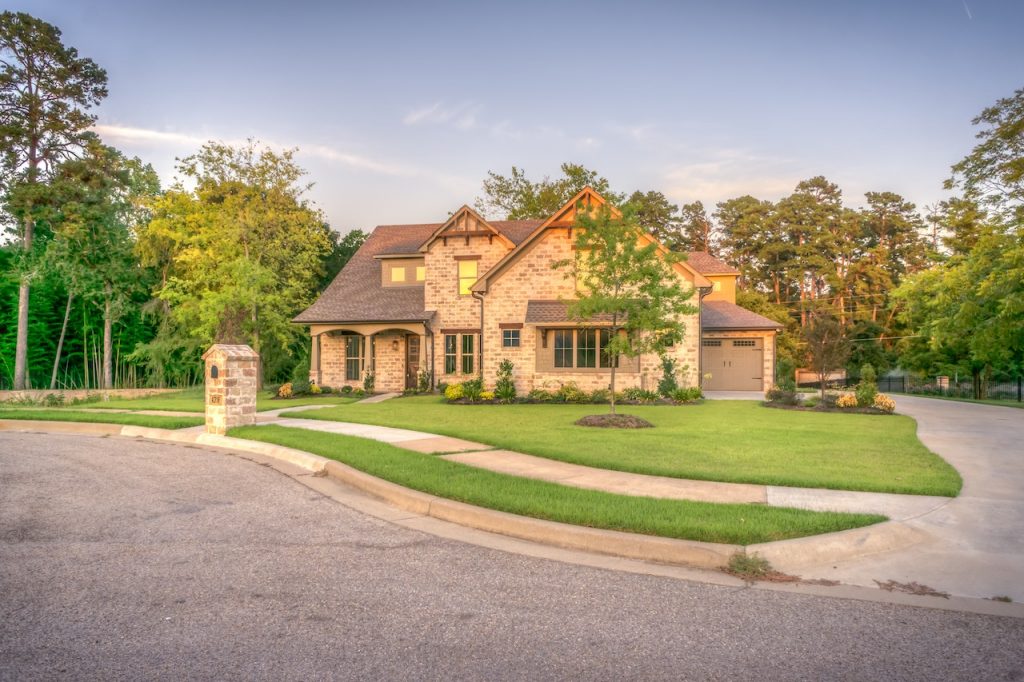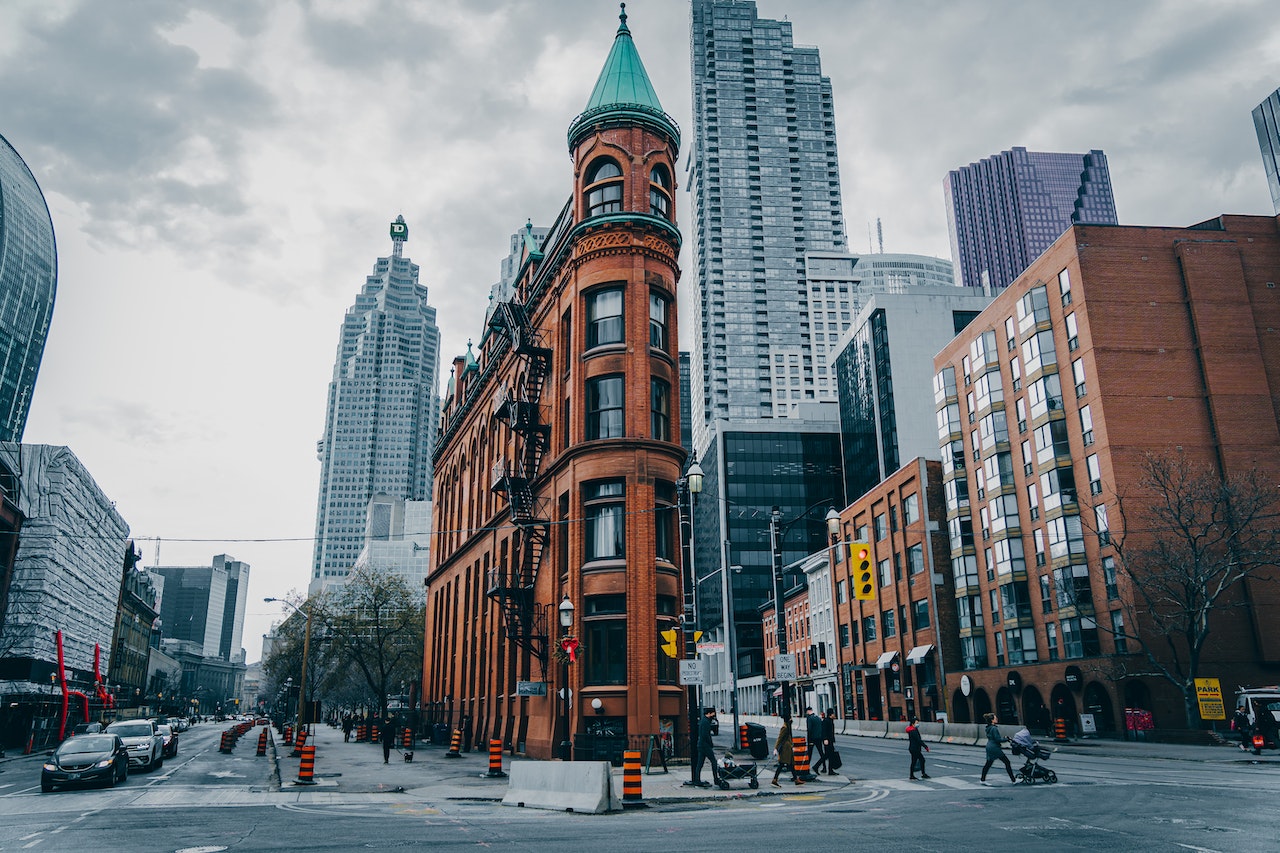Gothic revival, farmhouse, Italian style, and cottage. These are just some of the types of homes that you can purchase in Canada, all of which bring unique benefits and setbacks. But, in addition to the style of the actual house, you also have to determine if the property has been designated historic and decide if you’re interested in this type of home.

Buying historic homes is definitely different from conventional properties because there are certain guidelines you’ll need to follow. With that said, owning a historic home with unique design elements can be a superb experience. At the same time, potential buyers should also consider any potential gains that can come from owning specific historic homes before making a final decision.
If you’re not sure what a historic home is or the benefits of owning this type of property, you’ve come to the right place. In this article, we’ll go over everything you need to know when buying a historic house.
What Is a Historic Home?
First, let’s start with the basics: what is a historic home?
A historic home is a residential building that has some form of heritage value and has thus been recognized by the National Register of Historic Places. This can include private homes, commercial buildings that contain living premises, landmarks, and entire districts as long as they meet certain criteria.
The criteria for a historic home include, but are not limited to:
- The age of the property, which usually has to be greater than 50 years
- The structural integrity, especially for older homes that may have structural issues
- The significance of the building for the town, city, region, or other area’s past
Preservation and appointment of historic properties are usually handled at a local level. While most jurisdictions occur at a local level, it’s worth noting that the federal government does have the power to provide historic designation to any building.
Owners interested in acquiring an old home should review the city’s municipal code and familiarize themselves with the expectations that the local community has for the maintenance of the building.
Things to Know Before Buying a Historic House
You can find a historic building in any neighborhood, not to mention the fact that there are entire neighborhoods that have received this designation. So, there’s a strong chance you’ll have a few options available in the market if you decide on owning a property with historic value.
With the above in mind, there are many elements you should consider before buying a historic home. For starters, you should consider this purchase a huge financial as well as emotional investment. Sharing a house that has been lived in for centuries can bring up profound emotions, especially if there is some historic sensitivity surrounding the property.
Not only this, but the elements you should keep in mind when purchasing a building with historical significance include:
1. Heritage Homes May Need a Little TLC
Historic homes may require a little tender love and care. In other words, you may have to invest some money into sprucing up the property right after buying a historic home.
This makes sense because most historic properties have been standing for decades, if not centuries. Not only this, but many of these were built before the development of modern construction techniques. Therefore, these historic structures are more prone to water damage and similar setbacks.

There’s a big chance that purchasing a historic home means getting a fixer-upper, but you should see it as a long-term project that will benefit you later on.
2. There Are Some Renovations Restrictions
So, you may have to make renovations as well as carry out maintenance jobs here and there. But, it’s important to understand that historic properties may also come with certain restrictions when it comes to renovations.
Buyers that want to find an affordable historic property to renovate and flip need to conduct extensive research. Even if you find an old house that’s on the National Register at an affordable price, you need to find out if it’s located in a historic district.
This is crucial because historic districts usually have their own set of real estate laws and regulations designed to preserve local history.
Some of the most common renovation restrictions include not changing the layout of the interior, preserving the outdoor spaces, and only using certain materials on the outside of the actual building.
3. They Contain a Mix of Decor Styles
It’s not hard to find historic homes that have been well-preserved. That said, you’ll probably have a difficult time finding a house with a matching and flowing interior design.
The reason for this is that historic homes have been lived in for a long time. But, even though there are historic preservation laws that impact exterior and interior elements, these don’t usually include the decor.
So, you may find a house on the National Register that has a modern kitchen, 80s-style bathrooms, and many other elements from different eras.
4. You’ll Need to Hire a Superb Property Inspector
It doesn’t matter what type of property you want to purchase, you should always work with a reliable home inspector. However, if you’re looking at homes in historic districts, you should look for an inspector that actually has experience with this type of property.
Specialized property inspectors have more experience reviewing historic places and can detect tell-tale signs that other professionals may miss. It’s also a good idea to hire a mold and air quality inspector after your purchase to ensure there are no other factors that need your attention.
All of these steps need to take place before you create a proposed renovations plan or get approval from local governments to make property improvements.
5. Heritage Homes May Have a Bigger Price Tag
Homes and other historic properties located in historic districts can have a higher price tag, especially if they have modern conveniences like central air conditioning or heating.

Even if you find a historic property at an affordable price, you’ll likely have to make a significant investment to modernize the interior and preserve the outside of the house.
6. You May Get Some Financial Relief
While it’s true that you may end up paying a bit more for your historic property, you may also get some financial relief in the form of tax breaks and similar incentives.
Historic property owners can take advantage of these tax incentives and cover part of the renovations costs with these funds. Not all of your repairs may land under the umbrella of qualified rehabilitation costs, but you should get some tax credits if you invest in restoring your home.
7. Heritage Home Interiors Can Be Modernized
Although some owners choose to keep elements from previous eras, it’s possible to modernize most of the interior of your home.
The rules vary from one community to the next, so you need to consult with your local historic review board to figure out exactly what parts of the property can be updated.
8. The Facade Needs to Remain the Same
In the vast majority of cases, the most important thing about a historic property is its facade. So, you should always assume that you need to maintain the facade or front of your home exactly the same.
This can be challenging depending on what materials were used as well as the architectural style, but you can always request information from your local planning authorities to find out more.
Benefits Of Investing In Historic Houses
benefits of owning a historic home
- Contribute to the preservation of historic buildings
- Go through a new learning experience as a homeowners
- Appeal to certain renters that seek out historic homes
- Potentially sell your historic property for a higher price than you bought it
Conclusion
While owning a historic home is definitely not for everyone, these buildings can bring an immense amount of joy, satisfaction, and revenue. With that said, you need to keep the elements discussed above in mind if you want to find the best historic home for your investment project.
At Justo, our team of seasoned real estate agents and realtors can help you find the perfect home for your family or for your next investment. Get in touch with us today and book a consultation to start looking for the perfect home.
- The Impact of Interest Rate Cuts on Toronto’s Housing Affordability - April 23, 2025
- Bank of Canada Holds Interest Rate Steady Amid Tariff Uncertainty - April 19, 2025
- The Impact of Interest Rate Cuts on Toronto’s Housing Affordability - April 11, 2025




